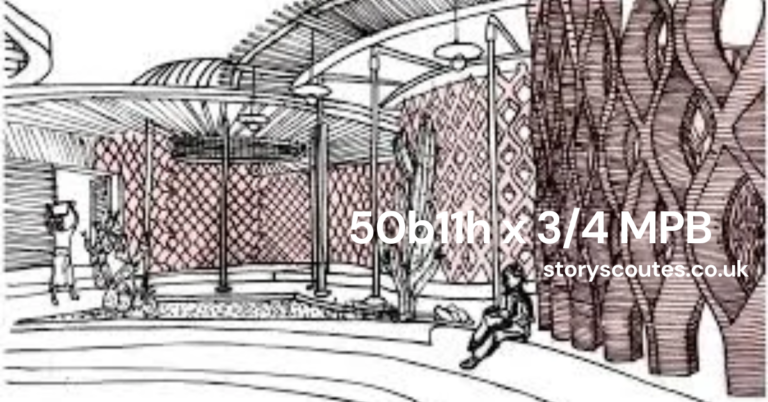Empowering Communities: The Impact of Korps Sukarela on Social Welfare
Korps Sukarela, meaning “volunteer corps” in Indonesian, epitomizes the essence of altruism and community service in modern society.
As a beacon of collective action and solidarity, it stands at the forefront of addressing societal challenges and fostering positive change.
In a world often marked by individualism, the significance of Korps Sukarela lies in its ability to mobilize volunteers, resources, and compassion to make a tangible difference in the lives of individuals and communities.
Whether responding to natural disasters, supporting local initiatives, or offering aid to those in need, Korps Sukarela exemplifies the timeless values of empathy, resilience, and civic duty.
Origins and Historical Background of Korps Sukarela.
The origins of Korps Sukarela trace back to the fundamental values of community solidarity and collective responsibility deeply ingrained in Indonesian culture.
While the concept of volunteerism has existed for centuries in various forms, the formalization of Korps Sukarela as organized volunteer corps gained prominence in the 20th century, particularly following Indonesia’s independence in 1945.
The aftermath of World War II and the struggle for independence sparked a spirit of unity and resilience among Indonesians, inspiring citizens to come together to rebuild their nation and support their fellow countrymen.
Over time, these localized efforts evolved into more structured and organized volunteer corps, known as Korps Sukarela, which continue to play a vital role in community development, disaster response, and social welfare across Indonesia today.
Also Read:kääntäjään – Global Visibility in 2024
The historical background of Korps Sukarela is rooted in Indonesia’s rich tradition of communal solidarity and mutual aid. These early volunteer efforts laid the foundation for the evolution and development of Korps Sukarela over time.
Over the decades, Korps Sukarela has evolved and diversified, expanding its scope of activities to address a wide range of social, economic, and environmental issues.
Today, Korps Sukarela continues to play a crucial role in community development, disaster response, and social welfare, reflecting the enduring spirit of volunteerism and collective action in Indonesian society.
Key characteristics of korps sukarela
Korps Sukarela is characterized by voluntary participation and a commitment to community service, embodying the spirit of collective action and social responsibility.
It empowers individuals through inclusive and diverse engagement, fostering personal growth, and promoting sustainable impact in addressing societal challenges.
Key characteristics of Korps Sukarela include:
- Voluntary Participation: Participation in Korps Sukarela is voluntary, driven by individuals’ willingness to contribute their time, skills, and resources for the betterment of society without expectation of financial compensation.
- Community Service: Korps Sukarela is dedicated to serving communities through various forms of community service, humanitarian aid, and social welfare activities aimed at addressing pressing social issues and improving the well-being of individuals and families.
- Collective Action: Korps Sukarela embodies the spirit of collective action, bringing together individuals from diverse backgrounds who share a common commitment to making a positive impact on society through collaborative efforts and teamwork.
- Flexibility and Adaptability: Korps Sukarela demonstrates flexibility and adaptability in responding to changing societal needs and emerging challenges, adjusting its activities and initiatives to address evolving priorities and circumstances.
- Empowerment and Capacity Building: Korps Sukarela empowers individuals to become active agents of change in their communities by providing opportunities for personal growth, skill development, and leadership training, thereby building capacity and fostering self-reliance among volunteers and beneficiaries.
- Inclusivity and Diversity: Korps Sukarela embraces inclusivity and diversity, welcoming individuals from all walks of life regardless of age, gender, ethnicity, religion, or socioeconomic status, and valuing the unique contributions and perspectives of each member.
- Social Responsibility: Korps Sukarela promotes social responsibility and civic engagement, encouraging volunteers to take ownership of societal issues and actively participate in efforts to address them, thereby fostering a sense of accountability and stewardship toward the common good.
- Sustainable Impact: Korps Sukarela prioritizes initiatives that have a sustainable impact, striving to create lasting positive change in communities by implementing long-term solutions, promoting environmental conservation, and building resilience against future challenges.
Types of korps sukarela
Korps Sukarela encompasses various types of volunteer organizations, including humanitarian groups like the Red Cross and Red Crescent, which focus on emergency response and disaster relief.
Non-Governmental Organizations (NGOs), such as Environmental and Educational NGOs, address broader societal issues like environmental conservation and educational access.
- Humanitarian Organizations:
- Examples: Red Cross, Red Crescent.
- Roles and responsibilities: Humanitarian organizations like the Red Cross and Red Crescent provide emergency assistance, disaster relief, and support to vulnerable populations during crises. Their responsibilities include providing medical aid, distributing relief supplies, offering psychological support, and coordinating emergency response efforts.
- Non-Governmental Organizations (NGOs):
- Examples: Environmental NGOs, Educational NGOs.
- Areas of focus and activities: NGOs encompass a wide range of organizations dedicated to various causes, such as environmental conservation, education, healthcare, and poverty alleviation. Environmental NGOs focus on protecting natural resources, advocating for sustainable development, and raising awareness about environmental issues. Educational NGOs work to improve access to quality education, provide scholarships, and support educational initiatives in underserved communities.
Also Read:Kääntäbä – Transforming Words into Language Solutions
- Community Volunteer Groups:
- Examples: Local clean-up crews, community welfare teams.
- Community impact and benefits: Community volunteer groups play a vital role in addressing local needs and promoting social cohesion. They engage in activities such as organizing clean-up campaigns, providing social services to vulnerable populations, and fostering community engagement and empowerment. Their impact includes improving neighborhood aesthetics, enhancing community well-being, and strengthening social bonds.
- Disaster Response Teams:
- Examples: CERT (Community Emergency Response Teams).
- Importance in emergencies and disaster situations: Disaster response teams like CERT are trained to respond to emergencies and disasters in their communities. They play a crucial role in providing immediate assistance, conducting search and rescue operations, and supporting emergency services during crises. Their importance lies in their ability to mobilize quickly, provide essential aid, and assist in evacuations and disaster recovery efforts, ultimately saving lives and minimizing the impact of disasters.
Mission and objectives of Korps Sukarela

source:designe deep
The mission and objectives of Korps Sukarela are centered around the fundamental principles of community service, social welfare, and humanitarian aid.
At its core, Korps Sukarela aims to mobilize volunteers and resources to address pressing social issues, alleviate human suffering, and promote sustainable development in local communities and society at large.
Its overarching goal is to foster a culture of volunteerism, civic engagement, and collective responsibility among Indonesians, empowering individuals to actively contribute to the betterment of society.
Key areas of focus for Korps Sukarela encompass a wide range of activities, including disaster response and relief efforts, healthcare initiatives, education programs, environmental conservation projects, and community development initiatives.
Volunteers within Korps Sukarela may engage in activities such as providing emergency assistance to disaster-affected communities, conducting medical missions to underserved areas, organizing educational workshops and skill-building programs, participating in environmental clean-up campaigns, and implementing sustainable development projects aimed at improving livelihoods and promoting social inclusion.
The impact of Korps Sukarela on local communities and society at large is profound and far-reaching. Through its diverse range of activities and initiatives, Korps Sukarela contributes to positive social change, strengthens community resilience, and enhances the well-being of individuals and families.
Organizational structure of Korps Sukarela
The organizational structure of Korps Sukarela typically comprises a centralized framework with a national or regional headquarters overseeing various chapters or branches.
Within this structure, volunteers play a pivotal role, actively participating in community service activities and assuming leadership positions within their local chapters or branches.
These volunteers take on responsibilities such as team coordination, project management, and community outreach, contributing to the effective functioning of the organization.
At the leadership level, Korps Sukarela operates under a hierarchical structure, with appointed leaders at the national, regional, and local levels.
National leaders, such as the president or chairman, guide the overall direction and strategy of the organization, while regional coordinators oversee activities within their respective regions.
Local leaders or coordinators within chapters or branches are responsible for day-to-day operations and decision-making.
Decision-making processes within Korps Sukarela are often collaborative, with input from volunteers, leaders, and stakeholders at various levels, ensuring that major decisions reflect the collective interests and priorities of the organization.
This structure and organization enable Korps Sukarela to effectively coordinate activities, mobilize resources, and empower volunteers to make a positive impact in their communities.
How to Start or Join a korps sukarela
To start a Korps Sukarela group, identify a cause, recruit volunteers, establish leadership, plan activities, obtain necessary resources, and promote your group.
To join an existing volunteer corps, research opportunities, contact organizations, attend orientation or training sessions, and get involved in their activities.
- Identify a Cause: Determine the focus or mission of your volunteer group, whether it’s disaster response, environmental conservation, education, or community welfare.
- Recruit Volunteers: Reach out to friends, family, colleagues, and community members who share your passion for the cause and are interested in volunteering.
- Establish Leadership: Appoint leaders or coordinators within your group to oversee activities, coordinate volunteers, and manage logistics.
- Plan Activities: Develop a plan of action outlining the activities and initiatives your group will undertake to achieve its mission and goals.
- Obtain Necessary Resources: Secure any resources or materials needed for your activities, such as supplies, equipment, or funding through donations or fundraising efforts.
- Promote Your Group: Spread the word about your volunteer group through social media, community events, and local organizations to attract more volunteers and raise awareness about your cause.
Also Read:Käänät – A Taste of Finnish Culture in Every Bite
Finding and Joining Existing Volunteer Corps:
- Research Volunteer Opportunities: Explore online platforms, community centers, and volunteer fairs to discover existing volunteer corps and organizations in your area.
- Contact Organizations: Reach out to the volunteer corps you’re interested in joining to inquire about their mission, activities, and volunteer opportunities.
- Attend Orientation or Training Sessions: Participate in orientation sessions or training programs offered by the organization to learn about their policies, procedures, and expectations for volunteers.
- Get Involved: Start volunteering with the organization by participating in their activities, events, and initiatives to make a positive impact in your community.
Tips for Effective Volunteering:
- Set Clear Goals: Define your objectives and expectations for volunteering to ensure you’re making meaningful contributions to the organization and community.
- Communicate Effectively: Maintain open and transparent communication with fellow volunteers, leaders, and stakeholders to coordinate efforts and address any issues or concerns.
- Be Reliable and Committed: Honor your commitments to the volunteer corps by showing up on time, completing tasks as assigned, and actively participating in activities.
- Stay Flexible: Be adaptable and willing to take on different roles or tasks as needed to support the organization’s goals and respond to changing circumstances.
- Seek Feedback and Growth Opportunities: Solicit feedback from leaders and peers to improve your volunteering experience and identify areas for growth and development.
- Practice Self-Care: Prioritize your well-being and avoid burnout by balancing your volunteering commitments with other aspects of your life and taking time for self-care and relaxation.
Training and Skills Development:
Training and skills development are integral components of Korps Sukarela, equipping volunteers with the knowledge and competencies necessary to effectively fulfill their roles and responsibilities.
From first aid and disaster management to community engagement and technical skills, such training enhances volunteers’ preparedness, professionalism, and ability to make a meaningful impact in their communities.
Importance of training for Korps Sukarela:
- Training is crucial for equipping volunteers with the knowledge, skills, and competencies needed to effectively carry out their roles and responsibilities within the organization.
- It enhances volunteers’ preparedness to respond to emergencies, address community needs, and contribute meaningfully to the organization’s mission and objectives.
- Training also promotes safety, professionalism, and efficiency in volunteer activities, ensuring that volunteers can perform their duties with confidence and competence.
Types of training provided:
- First Aid Training: Teaches volunteers essential first aid skills to provide immediate assistance to individuals in medical emergencies, such as administering CPR, controlling bleeding, and treating injuries.
- Disaster Management Training: Prepares volunteers to respond effectively to natural disasters and emergencies, including search and rescue techniques, disaster preparedness, and emergency response protocols.
- Community Engagement Training: Equips volunteers with communication, interpersonal, and community organizing skills to effectively engage with community members, build relationships, and mobilize support for volunteer initiatives.
- Technical Skills Training: Provides volunteers with specialized technical skills relevant to their roles and activities within Korps Sukarela, such as environmental conservation techniques, educational methodologies, or healthcare procedures.
Personal and professional benefits of Korps Sukarela:
- Personal Growth: Participation in Korps Sukarela provides opportunities for personal development, including acquiring new skills, gaining valuable experiences, and expanding one’s perspective through interactions with diverse communities and environments.
- Sense of Fulfillment: Volunteering with Korps Sukarela offers a sense of fulfillment and satisfaction derived from making a positive impact on the lives of others, contributing to the welfare of communities, and being part of a collective effort to create positive change.
- Professional Development: In addition to personal growth, volunteering with Korps Sukarela can enhance volunteers’ professional skills and attributes, such as leadership, teamwork, problem-solving, and communication, which are valuable assets in both personal and professional contexts.
- Social Connections: Volunteering fosters social connections and networking opportunities, allowing volunteers to build meaningful relationships, connect with like-minded individuals, and strengthen their social support networks within and beyond the organization.
The Role of Korps Sukarela in Society:
Korps Sukarela serves as a cornerstone of societal support, contributing to social welfare through its provision of essential services and support to vulnerable populations.
By enhancing community resilience and solidarity through disaster response efforts and community-building activities, Korps Sukarela fosters a sense of unity and cohesion, empowering individuals and communities to withstand and overcome adversity.
Contribution to Social Welfare:
- Korps Sukarela plays a vital role in promoting social welfare by providing essential services and support to vulnerable populations, including disaster victims, low-income families, and marginalized communities.
- Through initiatives such as food distribution, healthcare services, educational programs, and community development projects, Korps Sukarela addresses pressing social needs and improves the well-being of individuals and families in society.
Also Read:Kääbntäjä – Translator for Your Needs in 2024
Enhancing Community Resilience and Solidarity:
- Korps Sukarela enhances community resilience by equipping individuals and communities with the skills, resources, and support systems needed to withstand and recover from adversity.
- Through disaster response efforts, emergency preparedness training, and community-building activities, Korps Sukarela fosters solidarity, cohesion, and mutual aid among community members, strengthening social bonds and collective resilience in the face of challenges.
Filling Gaps Left by Government and Private Sector:
- Korps Sukarela fills gaps in social services and support left by the government and private sector, particularly in underserved or marginalized areas where resources and infrastructure may be lacking.
- By complementing and supplementing the efforts of governmental agencies and private organizations, Korps Sukarela ensures that no community is left behind, addressing unmet needs and promoting social equity and inclusivity.
Case Studies and Success Stories:

source:Apzo Media
Korps Sukarela’s swift response to a flood disaster saw volunteers distributing vital supplies, aiding thousands in affected communities, showcasing the organization’s pivotal role in immediate relief efforts.
In another initiative, a healthcare outreach program provided free medical services to underserved areas, significantly improving health outcomes and fostering community well-being.
Disaster Response and Relief Efforts:
- Project: Rapid Response to Flood Disaster
- Initiative: Korps Sukarela mobilized volunteers and resources to provide immediate assistance to communities devastated by severe flooding, distributing food, clean water, and emergency supplies to affected households.
- Impact: Through coordinated efforts, Korps Sukarela reached thousands of flood victims, providing critical aid and support during their time of need, ultimately helping communities recover and rebuild.
Healthcare Outreach Program:
- Project: Medical Mission in Underserved Communities
- Initiative: Korps Sukarela organized a medical mission, bringing together healthcare professionals and volunteers to provide free medical consultations, screenings, and treatments to underserved communities with limited access to healthcare services.
- Impact: The medical mission served hundreds of individuals, addressing their medical needs, raising health awareness, and promoting preventive care, thus improving the overall health and well-being of the community.
Environmental Conservation Campaign:
- Project: Reforestation and Clean-up Campaign
- Initiative: Korps Sukarela led a reforestation and clean-up campaign in partnership with local communities and environmental organizations to restore degraded ecosystems, mitigate environmental degradation, and promote sustainable land management practices.
- Impact: The campaign resulted in the planting of thousands of trees, restoration of natural habitats, and removal of tons of waste, revitalizing the environment, and fostering a sense of environmental stewardship among community members.
Impact Assessment and Outcomes Achieved
- Independent assessments and evaluations have demonstrated the tangible impact of Korps Sukarela’s projects and initiatives, including improved living conditions, increased access to essential services, and enhanced community resilience.
- Key outcomes achieved include reduced vulnerability to disasters, improved health outcomes, strengthened social cohesion, and enhanced environmental sustainability in target communities.
Testimonials from Volunteers and Beneficiaries
- Volunteers have expressed gratitude for the opportunity to make a meaningful difference in the lives of others through their involvement in Korps Sukarela, citing personal growth, fulfillment, and a sense of purpose as key rewards.
- Beneficiaries have shared heartfelt testimonials, highlighting the invaluable support and assistance provided by Korps Sukarela during times of crisis, emphasizing the organization’s role as a beacon of hope and solidarity in their communities.
Recognition and Awards:
Korps Sukarela has garnered widespread acclaim for its outstanding contributions to society, earning recognition at local, national, and international levels.
The organization has received numerous awards and accolades for its exemplary service and dedication to humanitarian causes.
Locally, Korps Sukarela has been honored by community leaders and organizations for its impactful initiatives and unwavering commitment to serving those in need.
Also Read:Käntäj – know the Revolutionary Translation Tool in 2024
Nationally, the organization has been commended by governmental agencies and non-profit associations for its significant role in disaster response, healthcare outreach, and community development.
Internationally, Korps Sukarela has been recognized by global institutions and humanitarian organizations for its exemplary service and contributions to advancing social welfare and resilience.
These awards and recognitions serve as testament to Korps Sukarela’s tireless efforts and dedication to making a positive impact on communities worldwide.
Challenges Faced by Korps Sukarela:
Korps Sukarela encounters various challenges in its mission to serve communities effectively. Common hurdles include limited funding, which can restrict the scale and scope of projects, and volunteer retention, as maintaining a committed and engaged volunteer base can be challenging over time.
To overcome these challenges, Korps Sukarela employs strategies such as diversifying funding sources through grants, donations, and partnerships, as well as implementing volunteer recognition programs and training initiatives to enhance retention and engagement.
Successful examples include Korps Sukarela chapters organizing creative fundraising events to secure additional resources and implementing mentorship programs to provide ongoing support and development opportunities for volunteers, resulting in increased retention and sustained impact on community initiatives.
Future of Korps Sukarela:
As volunteering evolves, emerging trends indicate a shift towards more flexible and diverse opportunities, accommodating volunteers’ changing lifestyles and interests.
Technology and social media are poised to play an increasingly significant role in volunteer coordination, enabling efficient communication, recruitment, and project management.
Platforms and apps tailored for volunteer engagement will facilitate greater accessibility and connectivity, empowering volunteers to participate remotely or on-demand.
Also Read:Exploring Opportunities with https:// entretech.org In 2024
Predictions suggest that volunteerism will continue to thrive, driven by a growing sense of social responsibility and a desire for meaningful engagement.
As Korps Sukarela adapts to these trends, it will harness technology and innovation to enhance its impact, foster community connections, and inspire a new generation of volunteers committed to making a difference in society.
Conclusion:
Throughout this exploration of Korps Sukarela, several key points have emerged. We’ve highlighted the organization’s diverse roles, from disaster response to community development, and its profound impact on society through social welfare initiatives.
Volunteers play a pivotal role, supported by training and skills development, contributing to the resilience and solidarity of communities.
Despite challenges like funding and volunteer retention, Korps Sukarela continues to innovate and adapt, leveraging technology and social media to coordinate efforts effectively.
As we look to the future, the importance of volunteerism cannot be overstated. It’s a powerful force for positive change, driven by individuals dedicated to making a difference.
FAQs
1. What is Korps Sukarela?
- Korps Sukarela, translating to “volunteer corps” in Indonesian, is a collective of individuals united by a shared commitment to community service and humanitarian aid.
2. How does Korps Sukarela operate?
- Korps Sukarela operates through various initiatives such as disaster relief, healthcare, education, and environmental conservation, mobilizing volunteers and resources to address social challenges.
3. Who can join Korps Sukarela?
- Anyone with a desire to contribute to society can join Korps Sukarela, regardless of age, gender, ethnicity, or background.
4. What types of activities does Korps Sukarela engage in?
- Korps Sukarela engages in a wide range of activities, including disaster response, medical missions, educational programs, environmental clean-up campaigns, and community development initiatives.
5. How can I start a Korps Sukarela group?
- To start a Korps Sukarela group, identify a cause, recruit volunteers, establish leadership, plan activities, obtain necessary resources, and promote your group within your community.






